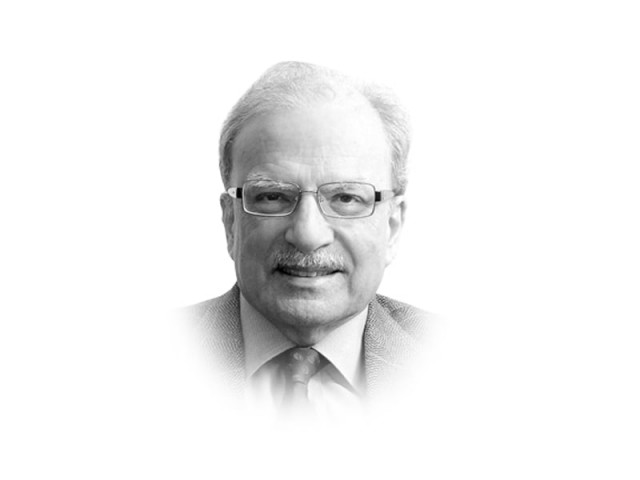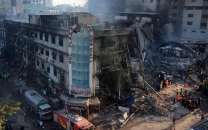Breakdown of the “Grand Bargain” — I
The Arab Spring will affect not only the entire Middle East. It is also likely to profoundly impact South Asia.

Breakdown of the “Grand Bargain” — I
The Arab Spring is a movement that has brought the citizenry of the several countries affected by this unfolding drama to the centre stage of politics. If all goes well, those in power will no longer be able to ignore the wishes and aspirations of the people. People will have influence on the making of economic and social policy and policies affecting relations with the outside world. It will not be possible for the leadership in these countries to disregard what the ‘street’ thinks and believes in. Over time ‘the street’ will be replaced by the representatives of the people who will be able to hold the executive branch of the government responsible for the actions it takes. What keeps western leaders awake at night is the fear that they will have to make more than a phone call to persuade the various heads of state to walk their way.
They should also lose some sleep over the fact that by slipping over into the neighbouring regions, the peoples’ movement may further erode the global presence of the West. The Arab Spring will affect not only the entire Middle East and most non-Arab Muslim countries in the area. It is also likely to profoundly impact South Asia. That is likely to happen not only because a third of the South Asian population — half-a-billion out of the total of 1.5 billion people — are Muslims. There will be consequences for different countries in the region for different reasons. The peoples’ revolution would have come to Pakistan if the country had not opted in early 2008 for democratic governance. But it will still come through a different route, one which will take it out of the American orbit in which the country moved for more than half a century into one that has at its center some of the regional powers — Turkey, Egypt, perhaps also Pakistan itself.
The Anna Hazare movement in India has already exposed the shortcomings in the traditional democratic structure in which the elected parliament does not always seem to represent what the electorate really wants. That is why a large number of people, mostly from the expanding middle class, felt that their economic gains in recent years were not matched by any kind of political profit. Troubled by the fact that while their economic advance was the product of hard work and risk-taking enterprise, large fortunes had been made and were being made by misusing the power of the government. In Hazare they found a ‘saint-politician’ they were happy to support. The Indian system may also need some change as it is not working for the people of the less well performing regions of the vast country –they constitute the majority of the Indian population. The income and performance gaps between the states on the west coast compared to those in the country’s east are increasing. Millions of people in the poorer states feel and resent that the tide of ‘rising India’ is passing them by.
Bangladesh, the third largest country in the South Asian mainland, is also struggling to find its political feet. Like other South Asian countries, it has also not been able to institutionalise the process of political transition. Political power if not usurped by military leaders as was in its case and was also the case of Pakistan, tends to flow through dynastic channels. In Pakistan three major political parties are controlled by families. Pakistan Peoples Party is engaged in the process of preparing the third generation after Zulfikar Ali Bhutto to take over its leadership. If the current plans succeed, India’s Congress Party will be handing over the reins of management to the fourth generation. In Bangladesh the two mainstream parties are led by the leaders who owe their positions to the members of their families who were once the country’s presidents. The current prime minister has removed one provision in the constitution through an amendment that had previously ensured some order in the transfer of power. The country’s president will no longer be able to let a caretaker administration take the responsibility for holding elections at the appointed time and in way that ensured political fairness.
One of the main lessons of the Arab Spring seems to have been lost on the leadership groups in South Asia, in particular on the families that have governed for so long and without being seriously challenged by political processes. One reason why so many people came out on the streets or assembled in public squares in so many different countries was the frustration with the fact that no political means were available for bringing about regime change. It is no coincidence that the three regimes that fell in less than one year had been in place for decades. The presidents of Tunisia, Egypt and Libya had governed for a total of 120 years. Populations frustrated with their performance and seeing no improvements in their own situation chose to rebel rather than continuing to remain passive and tolerant. There were many reasons why the street and the public square succeeded. One of the more important ones was that the established order did not have the support of the world outside the borders of the countries where people desired change. The “grand bargain” between the political elite and the West that had scaffolded the rule by the former finally broke down.
Published in The Express Tribune, October 3rd, 2011.



















COMMENTS
Comments are moderated and generally will be posted if they are on-topic and not abusive.
For more information, please see our Comments FAQ